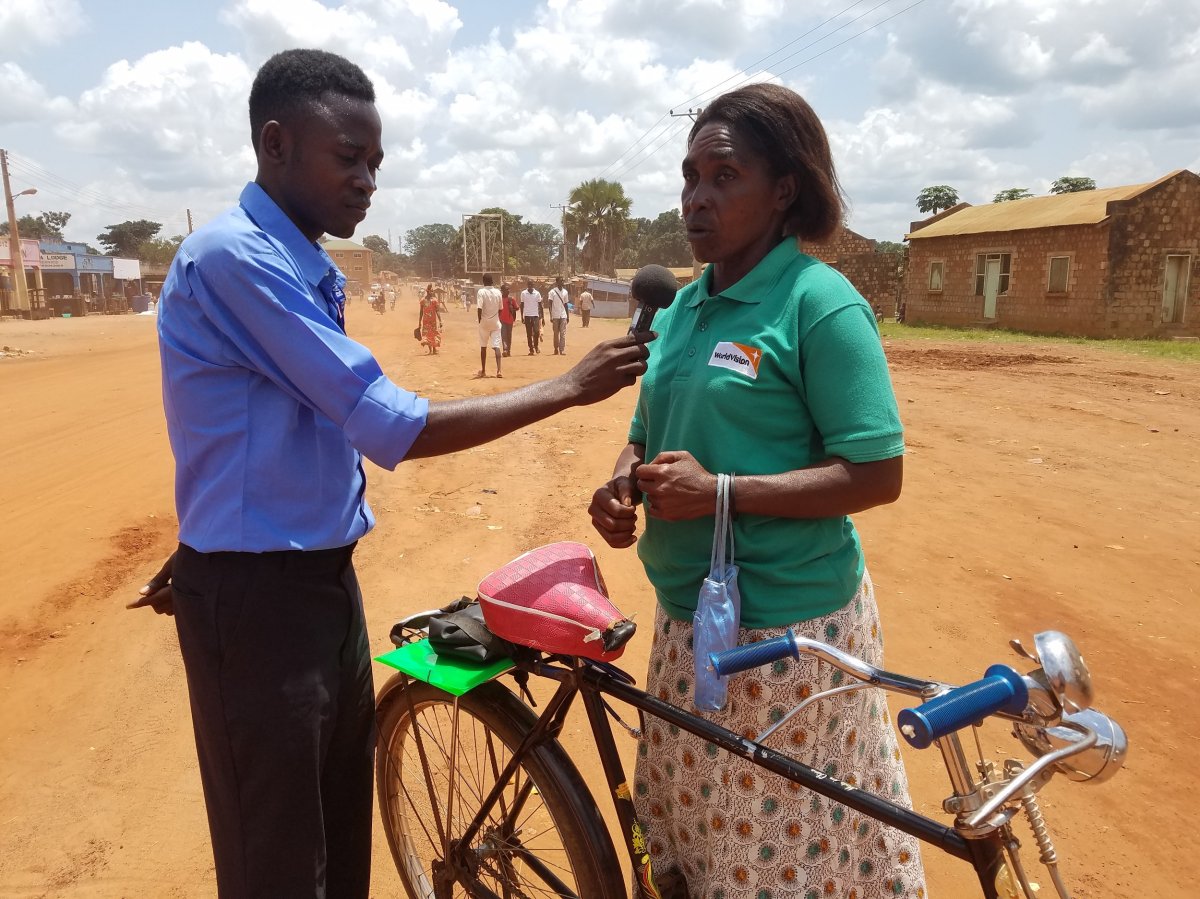Global News is a media partner with Journalists for Human Rights and, as part of that partnership, is proud to provide a platform for updates on JHR programs.

Yambio, South Sudan, can be hard to get to. Roads leading to and from the city are closed due to security concerns, and the only other option is an hour-long UN humanitarian flight from another city. Faced with this isolation, local journalists have found another way to reach people outside Yambio: a radio show called Anisa.
Anisa means “we are one” in Sande, the most commonly spoken language in South Sudan’s Gbudue state. The radio show broadcasts for 12 hours each day in English as well as other local languages, and it has listeners from across the state and all along the border with the Democratic Republic of Congo. Opened in 2014, the station’s slogan — “the voice of truth and peace” — is not taken lightly. Its journalists are committed: just getting to the station is a 30-minute drive from the city centre by four-wheeled vehicle.
Thanks to funding from the Catholic Radio Network and Journalists for Human Rights, these journalists have received specialized training to upgrade their skills in media ethics, human rights reporting and news writing. They were so eager to learn that journalists even came in on the weekend to continue working.
WATCH: Grant McDonald, network managing editor with Global News, discusses his three years in South Sudan with JHR and the importance of building up local media there in order to empower journalists to tell the story of South Sudan from a South Sudanese perspective.

After four days of instruction from JHR trainer Alpha Kamara, the budding journalists felt inspired to take on the challenges of community journalism with new knowledge and a clearer understanding of the professional and ethical responsibilities they have to the public.
Through the training’s hands-on framework, South Sudanese journalists got a chance to tell human rights stories that interested them. One such story was about women riding bicycles, an extremely common sight in Yambio.
One woman interviewed for the radio program, a 40-year-old military employee, told Anisa: “I ride (my) bicycle daily because it’s an easy way of transportation here. But because of the increase in the price of bicycles, I want the government to think of supporting women to be able to have more bicycles because it’s part of our culture.”
WATCH: Ron Waksman, VP, Digital, News and Radio with Global News and Corus Entertainment highlights experiencing resilient media managers in South Sudan who are creating the foundation for a new media in a new country.

The piece tapped into a long history of women riding bicycles in South Sudan, something that was also clear from interviews with state officials. The state minister of information and sports said that the government felt it was important to supply women with bicycles as part of a broader commitment to achieving gender equity, adding: “Every woman has a million rights to ride a bicycle in Yambio. That is part of our culture, and we as a government will continue to support it.”
While this story was a light-hearted way to talk about gender equity and human rights in the region, participants in the JHR training also learned how to cover sensitive topics like sexual and domestic violence and forced marriages. One participant said she learned that reporting “should always protect the victim and expose the perpetrator … Having this knowledge means we will do justice to more stories of human rights with professionalism.”
No matter the topic, Anisa journalists are now prepared to cover human rights issues with sensitivity and professionalism, and Kamara says the participants are eager to receive more training in the future.




Comments